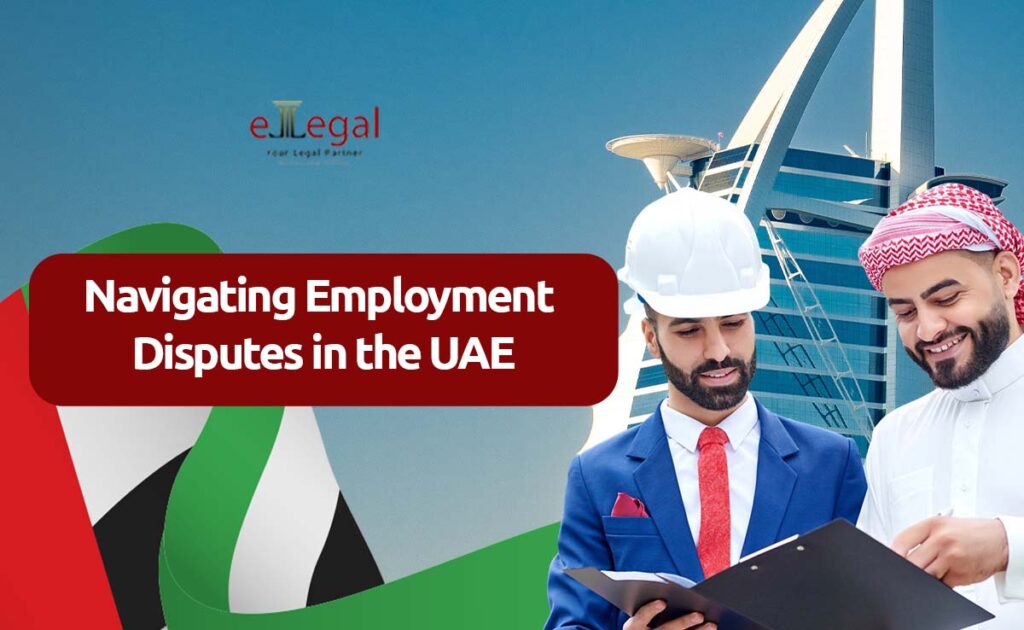Navigating Employment Disputes in the UAE
The United Arab Emirates (UAE) has emerged as a global business hub, attracting professionals and businesses from around the world. With a diverse workforce, the UAE’s employment landscape is governed by well-defined laws and regulations designed to balance the rights and responsibilities of both employers and employees. However, employment disputes can arise despite these regulations. Understanding the intricacies of employment law in the UAE can help workers and employers navigate such situations effectively.
Overview of Employment Law in the UAE
In the UAE, employment law is mainly regulated by Federal Decree-Law No. 33 of 2021, known as the UAE Labour Law. This law applies to all private-sector workers within the UAE mainland. While businesses in free zones might follow different or additional employment regulations, these typically correspond with federal law in most significant aspects.
The UAE Labour Law outlines essential provisions for employment contracts, working hours, wages, termination, and dispute resolution. It also emphasizes fairness and transparency to foster a productive and harmonious work environment.
Common Employment Disputes in the UAE
Despite the comprehensive legal framework, disputes can arise for various reasons. Some of the most common employment disputes in the UAE include:
- Unpaid Salaries and Benefits
One of the most frequent complaints by employees involves delayed or unpaid salaries. The UAE Wage Protection System (WPS) ensures that salaries are paid on time, but violations can still occur. Employees have the right to file complaints through the Ministry of Human Resources and Emiratisation (MOHRE) if salaries are not paid as per the contract.
- Unlawful Termination
Employees sometimes face unfair dismissal, such as being terminated without just cause or in violation of their employment contract. In such cases, the employee can seek compensation through legal channels.
- Discrimination or Harassment
The UAE Labour Law prohibits workplace discrimination based on gender, race, nationality, religion, or disability. Employees subjected to harassment or discrimination have the right to file complaints with the appropriate authorities.
- End-of-Service Gratuity Disputes
Disputes over end-of-service benefits, such as gratuity payments, are another common issue. Employers are required to pay gratuity based on the employee’s length of service and final salary.
- Employment Bans
Employees may face an employment ban in the UAE if they leave a job before completing the agreed-upon contract term or violate specific rules. Understanding the conditions that lead to an employment ban is crucial for employees to avoid legal complications.
Labour Dispute Settlement in the UAE
Resolving employment disputes amicably is always the preferred route, but when disagreements escalate, the UAE provides a structured process for labour dispute settlement. Here’s how the system works:
- Internal Negotiations: Employees are encouraged to resolve issues by having direct conversations with their employers or by using the company’s internal grievance procedures. This approach promotes open dialogue and provides a chance to tackle concerns without needing to involve legal processes.
- 2. Filing a Complaint with MOHRE: Employees can file a complaint with the Ministry of Human Resources and Emiratisation (MOHRE) if they believe their rights have been violated. The complaint can be submitted online, through the MOHRE app, or in person at a service centre. Once a complaint is filed, MOHRE will notify the employer and attempt to mediate the dispute.
- Mediation and Conciliation: MOHRE acts as a mediator between the employee and employer to reach an amicable resolution. Both parties are required to present evidence supporting their claims. Most disputes are resolved at this stage without escalating to court.
- Referral to Labour Court: If mediation fails, the dispute is referred to the Court. The court reviews the case and issues a verdict based on the evidence presented. Employees and employers are encouraged to seek legal representation to ensure their arguments are well-articulated. Unsatisfied parties under the new law can now appeal the decision of MORHE to the Court of First Instance instead of the Court of Appeal.
- Enforcement of Judgments: Once a court verdict is issued, both parties must comply with the judgment. MOHRE oversees the enforcement of decisions to ensure that employees receive any compensation or benefits awarded by the court
Tips for Avoiding Employment Disputes
For Employees
- Understand Your Rights: Familiarize yourself with employee rights in UAE as outlined in the Labour Law. Knowing your entitlements can help you identify and address potential issues early.
- Review Contracts Carefully: Before signing an employment contract, ensure you fully understand the terms, including probation periods, notice requirements, and end-of-service benefits. You can reach out to us at eLegal Consultants to help you review your contract and guide you going forward.
- Document Everything: Keep records of communication with your employer, including emails, salary slips, and employment contracts. These documents can serve as evidence in case of a dispute.
- Communicate Openly: Address issues with your employer promptly and professionally. Many disputes can be resolved through open communication.
For Employers
- Adhere to Labour Laws: Ensure compliance with employment law in the UAE to avoid legal disputes. This includes timely payment of salaries, fair treatment of employees, and adherence to contract terms.
- Draft Clear Contracts: Use well-drafted employment contracts that clearly outline the rights and responsibilities of both parties.
- Provide a Positive Work Environment: Foster a workplace culture of respect, inclusivity, and fairness to minimize conflicts.
- Seek Legal Advice: Consult with legal experts to ensure that your policies and practices align with UAE labour laws. Contact us at eLegal Consultants, we specialize in Labor Law, offering expert advice to individuals and businesses of all sizes.
Conclusion
Employment disputes can be stressful, but understanding the legal framework and processes in the UAE can help both workers and employers address issues effectively. By adhering to employment law in the UAE and fostering open communication, many disputes can be resolved amicably. For more information, Contact us Now.




